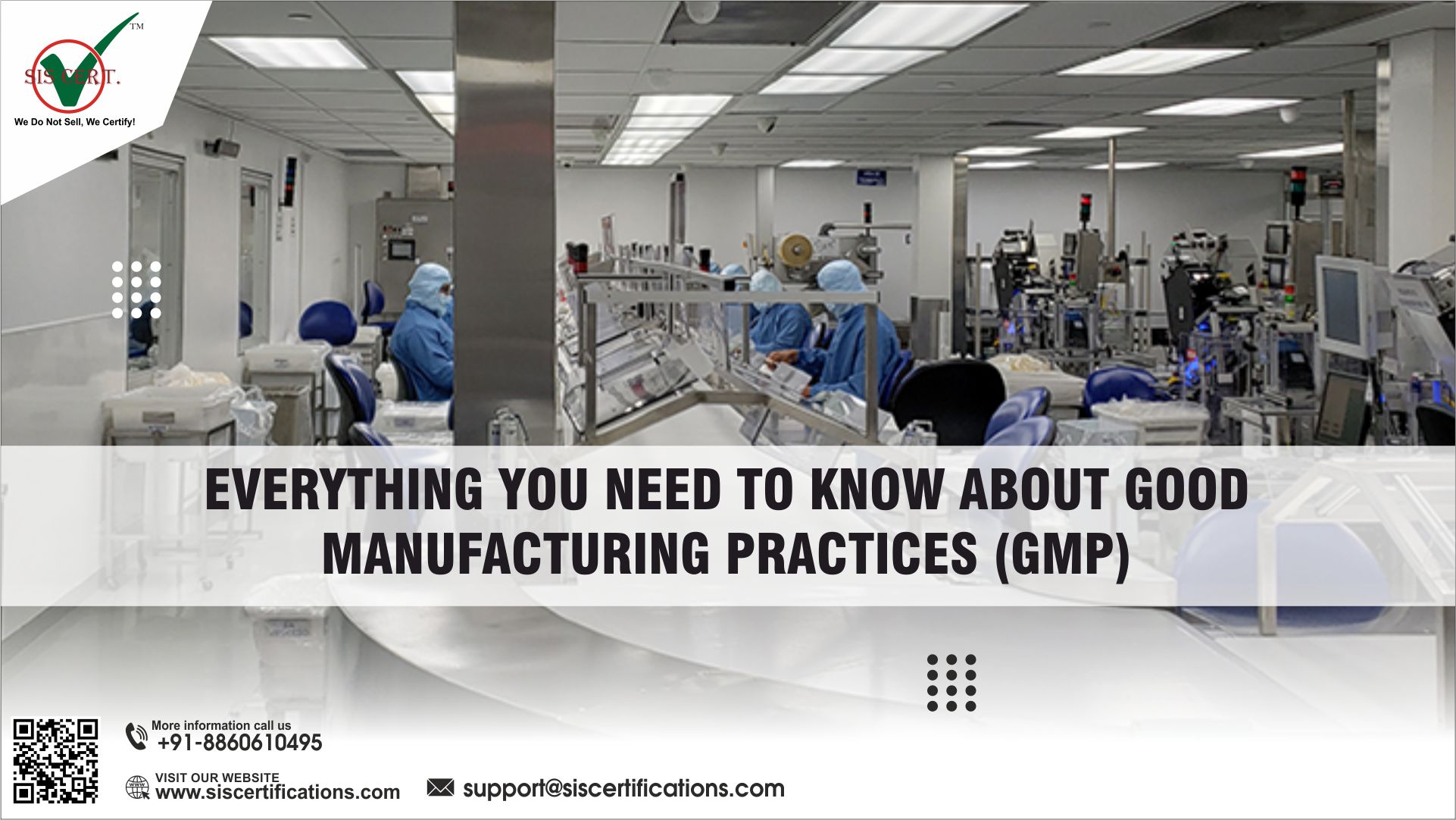Good Manufacturing Practices (GMP) provides a systematic approach based on rules and regulations for organisations to achieve intended outcomes. Moreover, it ensures the manufacture of safe and high-quality goods consistently across diverse industries, including the food, pharmaceutical, and cosmetics sectors. In this blog, we will cover everything about GMP, from its significance to its guiding principles and methods.
What is Good Manufacturing Practices (GMP)?
Good Manufacturing Practices (GMP) is a quality measuring system. Moreover, it describes the rules and guidelines necessary for organisations, from production and testing to the distribution of goods. GMP seeks to reduce production hazards by conducting a risk assessment to eliminate potential risks and testing the finished product. It is significant for products which directly impact consumers’ health and safety.
Importance of Good Manufacturing Practices (GMP)
Good Manufacturing Practice (GMP) is essential for ensuring the quality and safety of pharmaceutical products. Furthermore, it demonstrates an organisation’s dedication to guidelines for manufacturing processes and maintaining regulatory compliance. It offers a goldmine of benefits to an organisation; these are:
Benefits of Good Manufacturing Practice (GMP) ⮯
- GMP ensures the safety and quality of products by minimising the risk of contamination, adulteration, and other quality issues. Moreover, this directly safeguards consumer health and well-being.
- GMP ensures consistent product quality by establishing stringent standards and procedures and helps companies maintain their reputation and customer trust.
- Many regulatory agencies, such as the FDA (Food and Drug Administration) in the United States and the EMA (European Medicines Agency) in Europe, require companies to adhere to GMP guidelines. However, Non-compliance to GMP regulations can lead to legal and financial consequences.
- Implementing Good Manufacturing Practices (GMP) can reduce the likelihood of costly product recalls, fines, and legal disputes, ultimately saving companies money.
Principles of Good Manufacturing Practice (GMP) ⮯
The Eight principles of Good Manufacturing Practices (GMP) are as follows :-
- Documentation – It provides a comprehensive and accurate documentation approach for various business processes and procedures. Moreover, this includes batch records, standard operating procedures (SOPs), and quality control documents.
- Personnel – GMP guidelines mandate organisations to provide employees with proper training and hygiene practices to prevent contamination and ensure product quality.
- Facilities and Equipment – It states that adequate facilities and well-maintained equipment are necessary to maintain a clean and controlled manufacturing environment.
- Process Control – GMP focuses on consistency in manufacturing processes through strict process control measures, ensuring each batch meets quality standards.
- Raw Materials – The quality and source of raw materials are closely monitored and controlled to prevent contamination or adulteration.
- Packaging and Labelling – It follows appropriate packaging and labelling practices to manage mix-ups by ensuring accurate product information.
- Quality Control and Testing – GMP follows rigorous quality control and testing procedures at various stages of production to verify product quality.
- Records and Traceability – GMP mandates organisations to maintain detailed records of each batch to enable traceability.
Which industries can apply for Good Manufacturing Practices (GMP) Certification?
A list of industries that can apply for GMP Certification:
- Pharmaceuticals
- Food and Beverage
- Cosmetics
- Medical Device
- Herbal and Dietary Supplements
Implementation of Good Manufacturing Practices (GMP) Certification
Organisations can follow these steps to implement Good Manufacturing Practices (GMP) Certification. These are:
- An organisation must assign a team responsible for GMP compliance and training.
- Organisations must create and document GMP procedures tailored to their specific industry and product needs and requirements.
- Good Manufacturing Practices (GMP) provide thorough training to employees on GMP principles, hygiene, and procedures.
- It mandates organisations to conduct regular internal audits and inspections to identify and rectify compliance issues.
- Continuous Improvement is an integral principle that monitors and improves GMP practices based on feedback and evolving industry standards.
Conclusion ✅
Companies can obtain Good Manufacturing Practices (GMP) to win consumers trust and confidence. Moreover, it demonstrates an organisation’s commitment to safety and product quality by meeting quality regulations and GMP principles. Understanding and using GMP is essential for success and public trust, regardless of whether you are in the pharmaceutical, food, cosmetic, or any other business.




